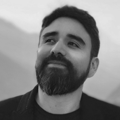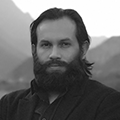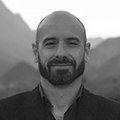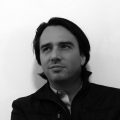
The last years have been rich exploring the relationships between objects and between people and objects. Nevertheless, there are still some categories that haven’t been dealt with, such as communication between societies in a collective scale and the transmission of qualitative values and emotions. After the first edition in Monterrey, this year GSS México in Querétaro, will address digitization as means of expression and communication among these media.
The central idea is communication among different categories of the context, using as a conductor the digital technologies,and exploring the relationship with art, natural and social landscapes and the city itself, all as a consequence of the multiple relations of this categories. Undoubtedly, digitization grants us access to a robust and dynamic control of reality, based on this state of the art, the exploration on the workshop aims to extend the communication beyond the digital, trying to reach the categories that represent Latin American cultures, seeking a dialogue among the different worlds of our collective reality.
It’s all about exploring the capacities of technological communication of the subject, understanding as technology, all those extra-biological processes. To think about the communication potential of these technologies in different contexts and in reality itself, being aware of new technological horizons for advanced exploration of space, the way to imagine, create and above all, to inhabit it.
–
Los últimos años han sido ricos explorando la comunicación entre los objetos y las personas con objetos, pero aún hay categorías que no están tan exploradas, como las comunicaciones entre sociedades a escala colectiva, como la transmisión de valores cualitativos y las emociones. Para esta edición del GSS México, después de la primera edición en Monterrey este año se abordará desde Querétaro el uso de la tecnología y la digitalización como medios de expresión y comunicación entre estos medios.
La idea central es la comunicación entre las diferentes categorías del contexto, usando como hilo conductor a las tecnologías digitales, y explorando la relación con el arte y los paisajes naturales, sociales y la ciudad misma, como una consecuencia de las multirelaciones de estas categorías. Sin duda la digitalización nos permite acceder a un control robusto y dinámico de la realidad, basados en este estado del arte, la exploración del taller pretende extender la comunicación más allá de lo digital, intentando llegar a esas categorías que caracterizan a las culturas latinoamericanas, buscando el diálogo entre los diferentes mundos de nuestra realidad colectiva.
En el fondo se trata de explorar las capacidades de comunicación tecnológica de los sujetos, entendiendo por tecnología a todos los procesos extra biológicos, y pensando en la comunicación entre las diferentes tecnologías y su capacidad de comunicación en los contextos y en la realidad misma. Pensando así en nuevos horizontes tecnológicos para la exploración avanzada del espacio, así como su forma de imaginarlo, crearlo y sobre todo, en la manera de habitarlo.
IAAC Global Summer School is a full-time two weeks course, 2-14 July 2018, that provides both practical and theoretical knowledge. The program is led by expert tutors, combined with lectures by renowned professionals and academics relevant to the topics to be treated during the course. These will be broadcasted in the different node-cities, all globally connected. Participants will join a global agenda and an international laboratory at their disposal to test their design hypothesis, understanding how design conclusions derived locally can be tested and evolved globally in the different cities where other teams reside.
In the node Querétaro, the workshop will be divided in theory, technology and project. During both weeks there will be theoretical and practical workshops developing around the realization of an applied project, where participants will learn digital fabrication technologies, programming basics and open sources technologies for advanced design.
–
IAAC Global Summer School es un curso de dos semanas a tiempo completo, del 2 al 14 de julio de 2018, que brinda conocimientos prácticos y teóricos. El programa está dirigido por tutores expertos, combinados con conferencias de reconocidos profesionales y académicos relevantes a los temas que se tratarán durante el curso. Estos serán transmitidos en las diferentes ciudades-nodo, todas conectadas globalmente. Los participantes se unirán a una agenda global y un laboratorio internacional a su disposición para probar sus hipótesis de diseño, entendiendo cómo las conclusiones de diseño derivadas localmente pueden ser probadas y evolucionadas a nivel mundial en las diferentes ciudades donde residen otros equipos.
El taller del nodo Querétaro estará dividido en teoría, tecnología y proyecto, durante las dos semanas se tendrán talleres teóricos, talleres prácticos alrededor de la realización de un proyecto aplicado, donde los participantes aprenderán tecnologías de fabricación digital, principios de programación y uso de tecnologías abiertas para el diseño avanzado.

Architect by the UNAM; Philosopher by UACH; Master in Genetic Architectures by the UIC; Master in Advanced Architecture by the IaaC; Máster in Cultural Anthropology by the FES; FabAcademy Diploma on “How to make (almost) anything” at the Center for Bits and Atoms at the Massachusetts Institute of Technology, MIT. Currently prepares his doctoral degree in Architecture and Design at the UIC in collaboration with the Doctorate in Cultural Biology.
Creator and co-founder of Nodolab, FabLab Monterrey, Máquinas Libres, among others, has received prizes like the 1st place of the Xingnux: Alternative Energy and Sustainable Construction, Monterrey, 2015; 1st place at the Latin American Biennial of Landscape Architecture 2014, in the category Built Work in Urban Scale, Wawa Pukllay; 1st place The Pushing Boundaries Award, Solar Decathlon Europe, Spain 2010; among others. Has been jury in several international competitions, like Innovators under 35 of the MIT Technology Review, and currently directs Nodolab.
In his professional path, has participated in more than one hundred projects in Spain, Italy, Brazil, Costa Rica, Venezuela, USA, Neatherlands, Norway, Iran, Taiwan, México, Poland, Qatar, Colombia, China, Perú, and Panamá. Developing the generation of genetic, morphological and artificial intelligence algorithms and studying processes of growth, configuration and conformation, trying to communicate abstract languages with the human, social and sensible world, space and perception.

Architect with honorable mention by ITESM Campus Querétaro. Composer and Master in Art: Studies in Modern and Contemporary Art at the Universidad Autónoma de Querétaro, UAQ. Afterwards he pursued a Master in Advanced Architecture in Barcelona at the Institute for Advanced Architecture of Catalonia, IaaC. Currently studying the Doctorate in Arts.
Professionally has been honored with the Young Creators Grant 2010-11 by the National Fund for Culture and Art in the category of architectural design. In 2013 was awarded the 9th Federico E. Mariscal Prize by the Queretaro State Architects Association (CAEQ) for the Library of Campus Juriquilla. That same year was chosen as the Professional of the Year by the Federation of Professional Associations of the State of Querétaro (FECAPEQ). He was also awarded a Honorable Mention in Europan 2007.
As a professor, has collaborated in the Architecture and Industrial Design programs as well as in de Master in Design Innovation and in Architecture at the Engineering Faculty of UAQ, where he also does research. Since 2012, he has developed several projects of educational infrastructure in the State of Querétaro, specially libraries, laboratorios, art workshops, courtrooms and the Center for Interdisciplinary Research and the Bookstore of the Fondo de Cultura Económica, “Hugo Gutiérrez Vega” in the Philosophy Faculty at UAQ. His work has been published in places like Mexico, Germany and Italy.

Architect with honors by the UNC; Master in Architecture: Critic and Project at the UPC; Postgraduate degree in scientific research at the Universidad de la Salle Bajío; and currently doing a doctorate in Architecture and City from the Interinstitutional Program of Architecture (PIDA) at the Universidad de Guanajuato, UG. Has been part of redIALA, -Architectural Research for Latin América- a group or architects from Argentina, Germany, Brazil, Mexico, Spain and Venezuela, that has developed participative and collaborative projects with intermediate institutions in Spain, Venezuela and Mexico, this group was awarded the “Best research project” in the 6th Iberoamerican Biennial of Architecture and Urbanism (Lisbon 2008) with the project entitled: “Urban Ecotones. New Identity for Disfigured Outskirts and Limit to Territorial Dispersion”. In 2012 funds NepaL, Needed Architecture for Latin America, as a discussion platform to spread ideas related to architecture and the city, working in specific collaborations with Arch. Bernardo Blázquez for architecture and performance projects.
Has received a number of awards, like a Honor Mention in the 6th Biennial of Mexican Architecture, from the Second Region of the Federation of Architects Associations of the Mexican Republic, and the Association of Architects of Leon for the research project “Heritage and Society: rescuing the modern imaginary in the construction of architectural identity for the city of Leon”.

Architect by Universidad Iberoamericana CDMX; Master in Advanced Architecture “Digital Tectonics” by the Institute for Advanced Architecture of Catalonia IaaC.
Dean of the School of Architecture, Universidad Anahuac Querétaro and Creative Director at RL Arquitectura.
Creator and co-founder of Arquitectura Experimental 2003-15, RL Arquitectura 2016, FabLab Mexico City, FabLab Queretaro, among others. Member of the Consultant Committee for Q500, a territorialization strategy promoted by ONU-Habitat and IMPLAN for the City of Queretaro. Honored with the Young Creators Grant 2014-15 by FONCA “National Fund for Culture and Art” in architectural design with open exhibitions throughout the country. Work Exhibited and presented at the “Biennale di Venezia” 2010, 2012, 2016, Design Week 2015, 2016, Mextropoli 2015, 2016, 2017, 2018.
Professor and Researcher at Universidad Iberoamericana CDMX 2009-13, Universidad Anahuac Mexico, Queretaro and Xalapa. Member of ACSA, ACADIA, CAEQ, ASINEA, Robots in Architecture. Member of the Academic Committee for EGEL-CENEVAL. Imparted conferences and workshops throughout Mexico and different countries. Consultant in Parametric Design, Digital Fabrication and Design Thinking applied to creative processes. Professionally, lead and participated in several projects in different themes and scales globally and locally. His work has been published in places like China, Italy, Mexico and Spain.
The workshop will be hosted in at the Cultural Center Hangar of the Universidad Autónoma de Querétaro. UAQ is an autonomous institution focused in the integral formation of professionals and citizens with a humanist approach, open to the free discussion of ideas in all fields of knowledge enriching and transmmiting them to society through its educational programs, research, technological development and vinculation.
The Universidad Autónoma de Querétaro is reknown as one of the best universities in the country and in Latin America, with a strong international prestige, a close relationship to society and in harmony with environment. It seeks to be a changing agent in the search for a free, fair and equitative human being.
–
El taller se desarrollará en las instalaciones del Centro Cultural Hangar de la Universidad Autónoma de Querétaro. La UAQ es una institución pública autónoma enfocada a la formación integral de profesionistas y ciudadanos con orientación humanista, abierta a la libre discusión de las ideas en todos los campos del conocimiento, mismos que cultiva y enriquece, transmitiéndolos a la sociedad a través de sus miembros y de sus programas educativos, de investigación, vinculación, difusión y desarrollo tecnológico.
La Universidad Autónoma de Querétaro es reconocida como una de las mejores universidades del país y de América Latina, con un sólido prestigio internacional, con una estrecha vinculación con la sociedad, y en armonía con el medio ambiente, para ser agente de cambio en la búsqueda de un desarrollo humano libre, justo y equitativo, a través del cumplimiento de sus funciones de generación y transmisión del conocimiento y de preservación, creación y difusión de la cultura.
IAAC GSS is open to creative and innovative people who are interested in fields such as architecture, urban planning, digital fabrication, design, etc., searching for a multidisciplinary experience in an international environment. No previous skills are required, although CAD design, programming and digital fabrication skills are welcome. The official language of the course is English & Spanish.
–
IAAC GSS está abierto a las personas creativas e innovadoras que estén interesadas en la arquitectura de tales campos, planificación urbana, fabricación digital, diseño, etc., buscando una experiencia multidisciplinaria en un entorno internacional. No se requieren habilidades previas, aunque el diseño CAD, la programación y las habilidades de fabricación digital son bienvenidas. Los idiomas oficiales del curso son inglés y español
After the course, the participants will have gained theoretical and applicative knowledge about advanced design strategies. They will be familiar with parametric software, data visualization and use of digital machines. The last day of course participants will join a presentation of developed projects reviewed by a renown jury and will receive a Global Summer School Diploma.
–
Después del curso, los participantes habrán adquirido conocimientos teóricos y aplicativos sobre estrategias avanzadas de diseño. Estarán familiarizados con el software paramétrico, la visualización de datos y el uso de máquinas digitales. El último día de los participantes del curso se unirá a una presentación de proyectos desarrollados revisados por un jurado de renombre y recibirá un Diploma de Global Summer School.
Each participant is responsible to investigate which documents are required via the embassies in their country of origin. The school will provide a confirmation letter regarding the participation to the course, and will assist where possible the visa process.
–
Cada participante es responsable de investigar qué documentos se requieren a través de las embajadas en su país de origen. La escuela proporcionará una carta de confirmación con respecto a la participación en el curso, y ayudará cuando sea posible el proceso de la visa.
Fes for Querétaro is 700€ and includes all material costs needed for the course. No additional registration fee is required. Flight tickets, accommodation and food are not included in the fee. Each participant should bring his/her own computer with the software installed. Further details about the software will be given to the participants upon acceptance.
–
La tarifa para Querétaro es de 700€ e incluye todos los costos de material necesarios para el curso. No se requiere tarifa de registro adicional. Los boletos de avión, alojamiento y comida no están incluidos en la tarifa. Cada participante debe traer su propia computadora con el software instalado. Se darán más detalles sobre el software a los participantes una vez aceptados.
In order to register to the Global Summer School, participants need to submit the online application form, where they will be asked to fill their personal details and to upload a CV. Portfolio is not required. GSS18 dates are from 2-14 of July 2018 and applications are open until the 27th of June 2018.
–
Para inscribirse en la Global Summer School, los participantes deben enviar el formulario de solicitud en línea, donde se les pedirá que llenen sus datos personales y que carguen un CV. Portafolio no es requerido. Las fechas GSS18 son del 2 al 14 de julio de 2018 y las solicitudes están abiertas hasta el 27 de junio de 2018.



